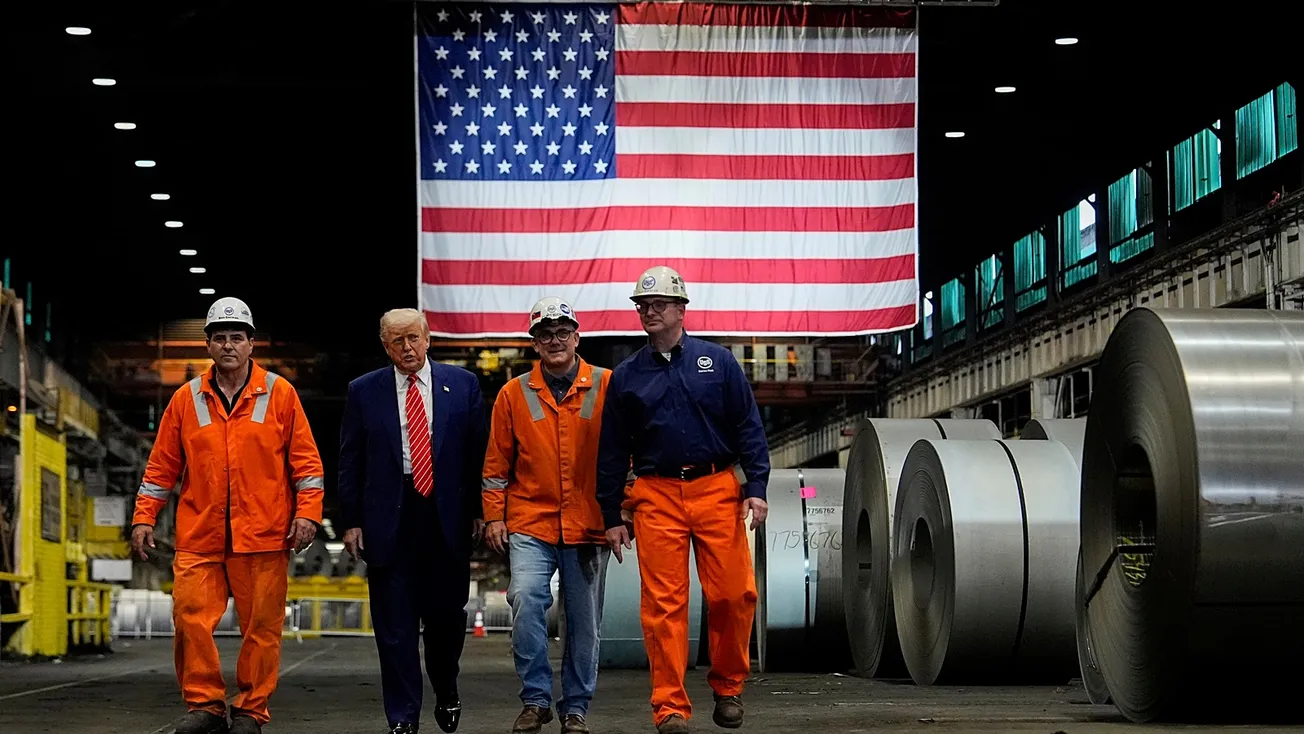Table of Contents
Britain's steel industry received a crucial last-minute reprieve from Donald Trump's punishing new 50% import tariffs, though the exemption comes with stringent conditions and a ticking deadline.
Key Takeaways
- UK steel imports will maintain current 25% tariff rates while other countries face doubled 50% levies
- Exemption stems from the US-UK Economic Prosperity Deal signed on May 8, 2025
- Britain faces a July 9 deadline to fully implement the trade agreement or risk higher tariffs
- UK Steel warns that uncertainty could still damage trade relationships with nervous US buyers
- The deal promises eventual elimination of all US steel tariffs in exchange for significant UK concessions
- Business Secretary Jonathan Reynolds met with US Trade Representative in Paris to expedite implementation
- Industry experts predict severe economic damage from broader tariff increases affecting global supply chains
Trump's Strategic Tariff Gambit Spares Britain
The White House delivered Britain an eleventh-hour exemption from President Trump's aggressive new steel and aluminum tariffs, which doubled import duties from 25% to 50% for most trading partners. The UK has been temporarily spared from the full impact of these measures, maintaining the existing 25% rate while other major steel exporters face the punishing new levies.
This reprieve directly results from the Economic Prosperity Deal struck between Trump and Prime Minister Keir Starmer on May 8. The executive order specifically acknowledges the need to "allow for the implementation of the US-UK Economic Prosperity Deal" and provide "different treatment" for British steel and aluminum imports.
The timing proves critical for UK steelmakers, who were bracing for what industry leaders described as potentially catastrophic consequences. The US represents Britain's second-largest export market for steel, worth approximately £400 million annually and accounting for roughly 9% of total UK steel exports by value.
Conditional Relief with Looming Deadline
While celebrating the immediate exemption, UK officials face mounting pressure to finalize the trade agreement's implementation. The executive order contains explicit warnings that tariff rates could jump to 50% "if he determines that the United Kingdom has not complied with relevant aspects of the EPD" by July 9, 2025.
This five-week deadline creates urgency for both governments to transform their preliminary agreement into concrete policy. Business Secretary Jonathan Reynolds met with US Trade Representative Jamieson Greer in Paris, where both officials committed to working closely to expedite implementation as quickly as possible.
The conditional nature of Britain's exemption reflects Trump's broader strategy of using tariff threats as leverage in bilateral trade negotiations. White House officials have confirmed that similar letters were sent to other key allies, requesting their "best proposals" for avoiding the higher tariff rates.
Industry Concerns Despite Temporary Victory
UK Steel Director-General Gareth Stace welcomed the exemption as a "time-bound vote of confidence" but emphasized that significant uncertainty remains. The organization warns that continued ambiguity over final tariff rates could damage commercial relationships, as US customers may hesitate to place orders from UK suppliers.
"Continued 25% tariffs will benefit shipments already on the water that we were concerned would fall under a tax hike," Stace explained. However, he cautioned that uncertainty lingers regarding timing and final tariff rates, potentially making US buyers reluctant to risk placing new orders with British steelmakers.
The steel industry's concerns reflect broader anxieties about global trade stability as Trump escalates his protectionist agenda. European nations, particularly Germany, Italy, Sweden, and the Netherlands, face substantial challenges from the new 50% tariff structure, while Canada and Mexico, as the largest steel suppliers to the US, confront similar pressures.
Economic Implications and Trade Deal Details
The Economic Prosperity Deal promises substantial benefits for both countries if successfully implemented. Britain agreed to eliminate US tariffs on steel entirely while reducing automotive tariffs to 10% for up to 100,000 vehicles annually. In exchange, the UK committed to expediting US agricultural and industrial exports and purchasing $10 billion worth of Boeing aircraft.
Economic analysts predict that Trump's broader tariff increases will drive US steel prices higher, resulting in increased costs for domestic industries including automakers and manufacturers of canned goods and beverages. A 2020 analysis of Trump's first-term steel tariffs found that while approximately 1,000 steel jobs were created, roughly 75,000 positions were eliminated in other sectors due to higher input costs.
The European Union has expressed frustration with the 50% steel tariff, arguing that such measures undermine ongoing trade negotiations with the US. EU representatives have indicated readiness to implement countermeasures, with both current and additional measures potentially taking effect on July 14 or sooner if conditions necessitate.
Looking Ahead: Pressure Mounts for Swift Implementation
The UK government maintains optimism about finalizing the trade agreement within the prescribed timeframe. A spokesperson emphasized that Britain remains committed to protecting British business and jobs across key sectors, including steel, as part of the government's broader economic strategy.
However, the five-week deadline creates significant pressure for negotiators to resolve complex technical details and ensure compliance with all aspects of the Economic Prosperity Deal. Prime Minister Starmer faces questions about the agreement's progress during upcoming parliamentary sessions, as opposition politicians scrutinize the government's trade strategy.
The stakes extend beyond immediate tariff relief, as successful implementation could establish a template for future US-UK economic cooperation while failure might signal broader challenges in the transatlantic relationship under Trump's second presidency.
Britain's temporary exemption from Trump's steel tariff surge provides crucial breathing room for industry and government officials to finalize their landmark trade agreement, though the July 9 deadline ensures continued pressure for swift diplomatic and economic action.







